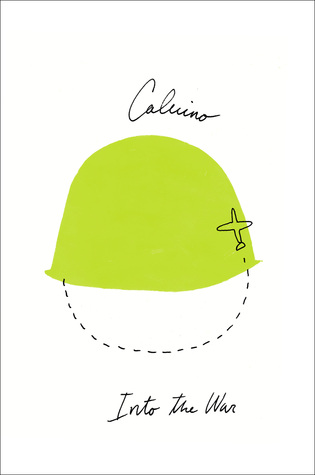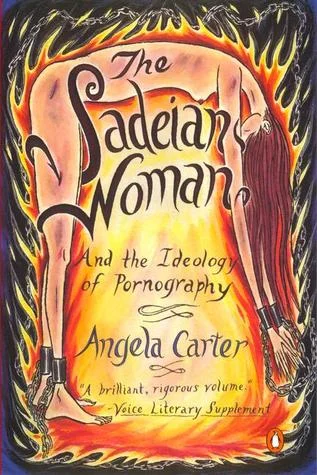Books I Read End of August
I went to a dance party on a mountain, I saw an old friend, I listened to some people read some things I'd written, I biked a lot, I helped a few people, I did my best to appreciate my brief period of time on this burning planet, I read and listened to the following...
The Handmaid's Tale by Margaret Atwood – In a dystopian America, women are forced to serve as breeding chattel for a corrupt pseudo-Christian elite. Come on, you know what this is about I'm the last person on earth who hasn't read it. It's good, actually, although it's a little bit light on plot and some of the literary flourishes get in the way of the narrative. But its evocatively creepy, and its depiction of gender relations is mean and unpredictable.
The Bloody Chamber and Other Stories by Angela Carter – 'Adult' retellings of classic fairy tales. This is a pretty staid idea (though in fairness, Carter seems to have gotten at it pretty early), but it's done very well, the sexy bits are sexy and the scary bits are scary and they're sufficiently closely intertwined that you can't always figure out what you're supposed to be feeling in any given passage. Most things like this aren't as good at this, and if you're in the mood for some light S/M flavored erotica you could do a lot worse.
From a Low and Quiet Sea by Donal Ryan – The sad lives of three men intersect tragically in a small town in Ireland. Well-written but kinda slender, didn't quite feel like there was sufficient meat on the bone.
Memoirs of a Polar Bear by Yoko Tawada – The biographies of three generations of semi-magical polar bears who sort of sometimes exist as humans. This was...bad. Just not good. It's the kind of book where nothing makes any sense but also line to line the story is all kind of drivel, hokey where it's supposed to be funny, maudlin where it's supposed to be effecting and always pretty boring.
The Ten Loves of Mr. Nishino by Hiromi Kawakami – Recollections of a lonely, lovesick cad from the ten women who loved him. It's a clever premise and pleasantly reasonable, but I felt like the esoteric, faintly mystical stylizing didn't improve the story, and the anti-hero himself is not so much insubstantial as insincere, seems more of a romantic archetype than a fully realized character.
The Crossing by Andrew Miller – An introverted, independent, arguably emotionally stunted woman has a family, loses it, crosses the Atlantic in a small sail boat. For my money, Miller is one of the best writers working. The writing is strange and strong, his characterization is slick but non-judgemental, and (rarest of all) each of his books feels fresh and different, rather than basic retreads of some essential idea. I thought was real strong, I thought the other things I read by him were real strong, I think you should check him out.
The Weekend by Peter Cameron – A trio of Manhattan bourgeoisie deal with death, love, age over the course of a weekend Upstate. It's gracefully written, and I can't say there was anything actually wrong with it, but frankly rich people at garden parties is just a subject I never really need to revisit again. Which, fair enough, is probably on me for having picked it up. What can I say, I read a book a day you can't always be that choosy.
Dog Soldiers by Robert Stone – During the waning days of the Vietnam war a second-rate stringer and his hippie girlfriend try and put together a heroin deal, horrific chaos ensuing. Quite good. You can see the influence it had on a wide-range of contemporary popular culture, from Oliver Stone to Thomas Pynchon, although it's better than most of its children. The story is propulsive and often funny, and its nihilism is bleak and honest and not that masturbatory, so far as these things go.
Into the War by Italo Calvino – Three brief vignettes about Calvino's experience in the early days of World War II. Strong stuff, a nostalgic depiction of the rich intensity of youth atop a nation unknowingly headed for vigorous calamity.
The Devil in the Forest by Gene Wolfe – A weaver's apprentice in a small European village is caught between a charismatic, brutal outlaw and a savage squad of guardsmen. Wolfe has a real gift for being able to think his way into specific situations, how and why people act in the way they do, but he also has this exhausting tendency to relate critical narrative bits in deliberately incoherent ways, then explore them through lengthy expository dialogue. If you haven't read Wolfe (what are you doing?) probably don't start here, but as far as completists go it's worth a look.
No Longer at Ease by Chinua Achebe – The corruption and destruction of a civil servant in post-independence Africa, caught between adopted models of behavior and the traditions and loyalties of his native culture. Achebe is one of the great interrogators of late-stage colonialism, and this is strong stuff. He has a talent for limning characters very quickly, as well as an insight into the conditions of post-independence Africa which is sympathetic but still critical. Very good.
Sanitorium Under the Sign of the Hourglass by Bruno Schulz – Surreal recollections of the author's youth in a provincial Dual-Monarchy capital, a series of short, largely incoherent vignettes about death, madness, youthful love, all that fun stuff. The stories are unsettlingly weird, but mostly I didn't feel like they were much more than that. With the exception of the eponymous entry, about living in a halfway point between life and death, they seemed vaguely formed and a little repetitive. Which, I guess is maybe part of the charm? I can see why this guy is considered the ur-text for a lot of contemporary fiction, but I think if I'm being blunt I would say that its the sort of contemporary fiction I don't much enjoy.
The Return of the Soldier by Rebecca West – An amnesiac soldier returns to England obsessed with his teenage love/the time before war, death and adult responsibility swallowed life's joys. I've been in love with West since reading Black Lamb and Gray Falcon in college, and was in retrospect surprised I hadn't picked this one up before, especially cause it's very short. Of course, it's a dangerous thing trying to recapture an old love, as our hero finds out to his despair, but happily no similar tragedy awaited me. West is a marvelously talented writer, this is sweetly written, romantic but not cloying, and authentically sad. Good stuff!
Seize the Day by Saul Bellow – A middle-aged failure tries to make sense of his life over the course of a desperate day of further failure, which is to say this resembles every other Saul Bellow book except for Henderson the Rain King. I guess this was a month for revisiting old favorites, as once upon a time I was quite the Bellow aficionado, although it was far back enough that this seems almost a condemnation (sorry, high school Danny! You were an idiot). Anyway, I couldn't really come to any conclusions based on this slim novel. There's a sort of manic energy, but it was also a little one note. At some point I'll just have to man up and break back into Herzog or something.
The Yacoubian Building by Alaa Al Aswany – A half-dozen residents of a faded apartment building in Cairo tell a wider story of modern Egypt. The writing is tight, it's thoughtful and at times erotic, but the ending fails to fulfill the promise of the rest of the book, and I found myself a bit disappointed by the time I closed the cover.
Cane by Jane Toomer – Stories, poems and sketches of pre-war black life in Georgia and Washington, D.C. Very good, very strange. Obviously a lot of pretty fabulous fiction came out of this milieu, but Cane is very much its own thing, at turns pastoral, nostalgic, and horrific. Heady stuff, worth your time.
The Samurai by Shusaku Endo – Four samurai during the early Edo period accompany a priest on an ill-fated voyage west. Historical fiction going in a direction we rarely see, sort of an anti-Shogun. It lacks some of the juice of the best of these sorts of books, and the protagonists have that sort of tiring habit of directly stating their thoughts, moods and feelings to other characters/the reader. But it has a genuine (if ironic) sympathy for its misbegotten heroes which more than merits a read.
The Sadeian Woman: And the Ideology of Pornography by Angela Carter – An attempt to re-imagine/reconceptualize the Sadean anti-heroines as proto-feminist archetypes. Ms. Carter is very clever, but I confess I never found anything remotely interesting about the Marquis. This has the feel of a lot of critical theory where its all enormously clever but none of it actually seems true.
BUtterfield8 by John O'Hara – A depression era party girl comes to a predictable if tragic end. I really like O'Hara, he's been one of this year's present surprises. He has a knack for writing about self-destructive behavior in a way that neither judges nor glamorizes it, and unlike a lot of his hyper-masculine peers he has a certain feminine insight. Good stuff.
The Dutch Republic: Its Rise, Greatness, and Fall 1477–1806 – A twelve-hundred page overview of the Dutch Golden age, when the beer-swilling regents of Amsterdam drained the seas, overthrew the Western Hapsburgs and burned fleets in London harbor. It's probably kind of bullshit to call something out like this for being dry but...fuck if it wasn't dry. It seems to me that even in a work of essentially academic history there should be a little room for color, and the author has a way of passing over monumental moments in history as if he's slightly ashamed to be discussing them and would prefer to get back to obscure inter-Calvinist feudings. But really this was mostly my fault, I mean, I should have known what I was getting into.



















